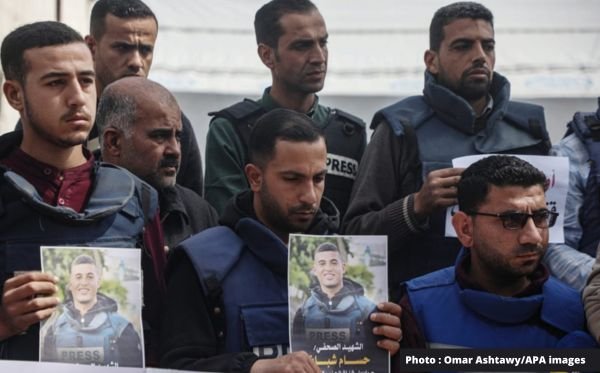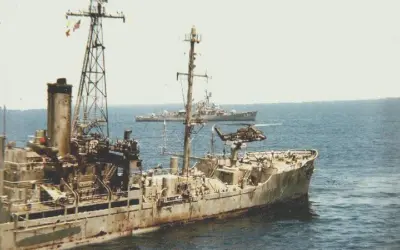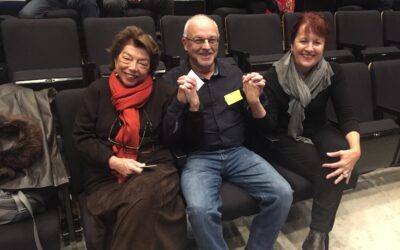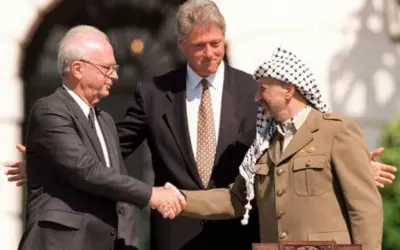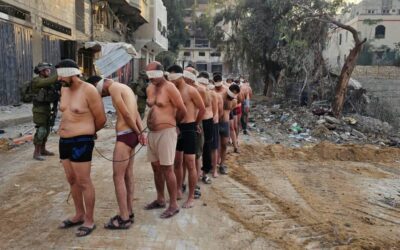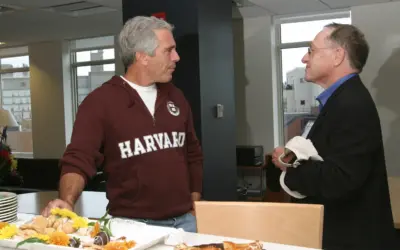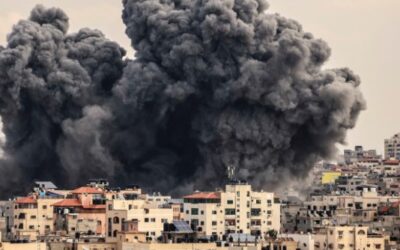Hossam Shabat and Mohammad Mansour were the latest Palestinian journalists to be assassinated in Gaza. Responsibility for their killings rests in part on their Western colleagues who have failed to accurately cover Israel’s genocidal assault
On March 24, 2025, we witnessed the deliberate killing of yet another Palestinian journalist. Hossam Shabat, a 24-year-old reporter for Al Jazeera Mubasher and contributor to Drop Site News, was assassinated in an Israeli airstrike targeting his vehicle in northern Gaza. Hours earlier, Mohammad Mansour, a correspondent for Palestine Today, was also killed in Khan Younis.
These were not accidents. These were not casualties of “crossfire” or “clashes.” These were targeted assassinations designed to silence those who document the truth about Gaza.
“If you’re reading this, it means I have been killed—most likely targeted—by the Israeli occupation forces,” wrote Hossam in a final message shared by his team. His words now stand as both testament and indictment. “I documented the horrors in northern Gaza minute by minute, determined to show the world the truth they tried to bury.”
The Israeli military placed Hossam and five other Palestinian journalists on a hit list in October 2024. He regularly received death threats by call and text. Yesterday, that threat was carried out.
When this genocide began, Hossam was just 21 years old—a college student studying journalism who could not have imagined his future. “Little did I know I would be given one of the hardest jobs in the world: to cover the genocide of my own people,” he wrote about a year ago.
Since October 2023, at least 208 Palestinian journalists have been killed by Israeli forces. This is not collateral damage—it is a systematic campaign to eliminate witnesses. By targeting journalists, Israel seeks to control the narrative, to ensure that its actions in Gaza occur in darkness, free from the scrutiny of international law and public opinion.
The idea that Western journalists are responsible for Hossam’s martyrdom today is not a slogan. Their total journalistic malpractice and regurgitation of Zionist propaganda has left Palestinian journalists exposed, as a precious few who publish the truth, and, therefore: targets. Their failure to accurately report on the targeting of their colleagues, their reluctance to challenge Israeli narratives, and their tendency to frame these killings as unfortunate byproducts of conflict rather than deliberate acts—these journalistic failures have real consequences. They have left Palestinian journalists vulnerable, bearing alone the responsibility of documenting atrocities that many Western outlets refuse to acknowledge.
Hossam embodied resilience in the face of this isolation. “I say to the world, I am continuing. I am covering the events with an empty stomach, steadfast and persevering,” he once said in an interview. Hours before his death, he filed a story about Israel’s renewed bombing campaign that killed over 400 people, including nearly 200 children, in just hours. “I want to share the text urgently,” he wrote, desperate to ensure the world would know.
For 492 days, Hossam survived in conditions most journalists will never experience. He “slept on pavements, in schools, in tents—anywhere I could,” he wrote. “Each day was a battle for survival. I endured hunger for months, yet I never left my people’s side.”
The father of Mohammad Mansour, the other journalist killed yesterday, spoke words that should haunt every newsroom: “Stand up and speak, tell the world, you are the one who tells the truth, for the image alone is not enough.”
Yet most Western journalists remain silent about the systematic killing of their Palestinian colleagues. The International Federation of Journalists has documented by name those killed or injured, but these deaths rarely receive the coverage or outrage they deserve. When journalists are targeted anywhere else in the world, press freedom organizations and major news outlets rightfully condemn such attacks. The silence surrounding Palestinian journalists speaks volumes.
True journalism means acknowledging uncomfortable truths: that these journalists were not killed accidentally but deliberately targeted; that their deaths serve to obscure war crimes; that the weapons used to kill them often come from the same countries whose media fails to report accurately on their deaths.
In his final message, Hossam made a request: “Do not stop speaking about Gaza. Do not let the world look away. Keep fighting, keep telling our stories—until Palestine is free.”
Western journalists have a moral and professional obligation to honor this request. They must accurately report on the targeting of their colleagues. They must challenge narratives that dismiss these killings as unfortunate accidents. They must recognize that their silence makes them complicit.
Hossam concluded, “By God, I fulfilled my duty as a journalist.” The question now is whether Western journalists will fulfill theirs.
Ahmad Ibsais
Ahmad Ibsais is a first-generation Palestinian American and a law student who writes the newsletter State of Siege.
To donate to Mondoweiss, click on the link below:
How Western media silence enables the killing of Palestinian journalists – Mondoweiss
Read also: https://www.msnbc.com/opinion/msnbc-opinion/journalists-killed-israel-hamas-war-rcna198613
